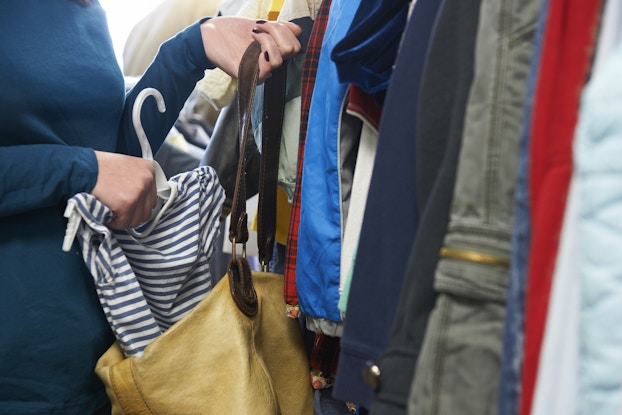
When shoplifters steal your products, it can end up costing you big. According to a survey from the National Retail Federation, retailers reported an average loss of $461.86 per shoplifting incident in 2020. Thankfully, there are practical solutions that can help prevent shoplifters from targeting your business. Here are six of our top tips.
[Read: Security Guide: Keeping Your Business Safe Online and Off]
Acknowledge customers
Greeting everyone who walks through your door isn’t just a good customer service practice — it can also help deter criminals from taking your products. “Make sure your employees acknowledge every customer so that the potential shoplifter knows you’re aware of them being there,” said DeAnna McIntosh, a retail business coach and consultant. “If nobody says hello or is aware of them, that makes the thief even more drawn to stealing because they think that you don’t know they’re there.”
Keep your store neat and organized
You can make your store less desirable to shoplifters by keeping it tidy and organized. “When a shoplifter goes to a location, they’re going to look at what the condition of the store is like and whether somebody will immediately know if something is missing,” said Tony Sheppard, director of loss prevention solutions for ThinkLP. “If they enter the store and everything is where it’s supposed to be, they’ll know that if they remove something, someone is going to notice.”
When employees care about the business, they will take it personally if somebody shoplifts. If not, they might have an attitude that 'it’s not my problem.'
DeAnna McIntosh, retail business coach and consultant
Limit access to hot items
To help protect the pricier or more in-demand items in your store, consider keeping them in a locked display or holding them behind the counter. You could also limit the number of hot items that you display on your sales floor. “This way, if someone steals from your store, you’re going to lose less inventory,” said Sheppard. “Keep extra stock in the back if you have the room.”
Use cameras and mirrors
Placing one or more cameras in your store can help scare off potential shoplifters. “They’ll know that if they do something, they could be identified later because they’ve been on camera,” said Sheppard. “Even just one camera at the front door is all it takes.” If you can’t afford to purchase security cameras, you could still consider hanging a sign telling customers that security cameras are monitoring. “Frankly you don’t actually have to have the cameras,” said Sheppard. When the criminal sees the sign, it can still be a deterrence because they’ll assume there are cameras watching.”
Placing mirrors around your shop can also help your employees keep an eye on customers. “Identify where there are ‘blind spots’ in your store, or areas where it can be hard to see what a customer is doing, and place mirrors there,” said McIntosh. “This is a cheap solution that can really help.”
Create loyal employees
Fostering a strong company culture where employees feel invested in your business can help prevent shoplifting. After all, at times when you are not present on the sales floor or are preoccupied, you’ll want your employees to keep a watchful eye on your store and take note of any fraudulent activity. “When employees care about the business, they will take it personally if somebody shoplifts,” said McIntosh. “If not, they might have an attitude that ‘it’s not my problem.’”
[Read: 4 Factors that Drive Employee Morale and Why They Matter to Your Business]
Get to know your neighbors
If there are other businesses located near your store, get to know the owners and be sure to share information with each other. “This way if one store gets hit with shoplifting, they can inform the other businesses so that everybody can be on alert,” said McIntosh.
You can also consider sharing the cost of a security guard with other small businesses nearby. “Let’s say you’re a small business and you’re in a plaza with ten other small businesses. You may not have enough money for a guard on your own, but if all ten of you get together, you might be able to hire a guard for the parking lot or a guard who goes store to store,” said Sheppard.
CO— aims to bring you inspiration from leading respected experts. However, before making any business decision, you should consult a professional who can advise you based on your individual situation.
Follow us on Instagram for more expert tips & business owners’ stories.
CO—is committed to helping you start, run and grow your small business. Learn more about the benefits of small business membership in the U.S. Chamber of Commerce, here.










